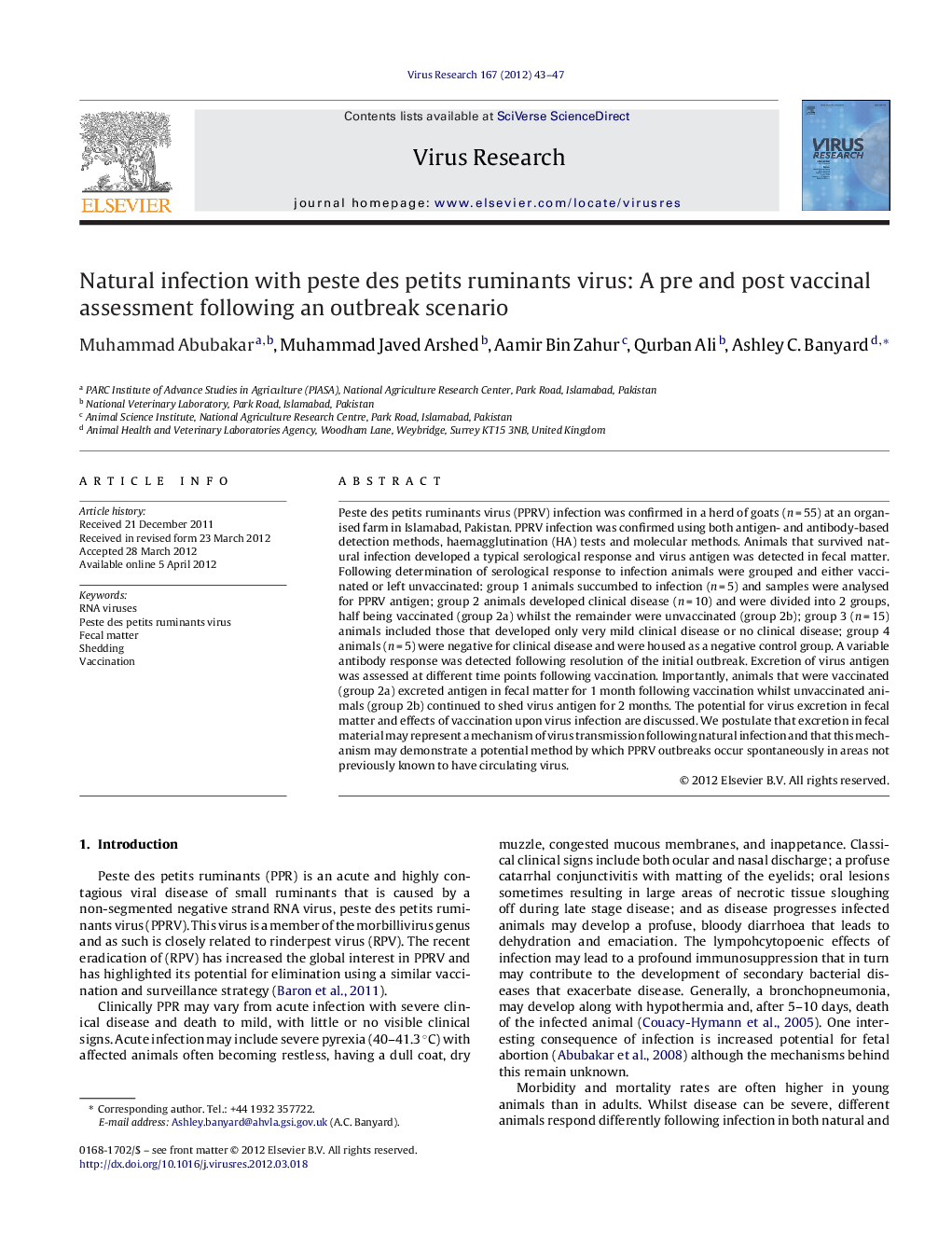| Article ID | Journal | Published Year | Pages | File Type |
|---|---|---|---|---|
| 3428760 | Virus Research | 2012 | 5 Pages |
Peste des petits ruminants virus (PPRV) infection was confirmed in a herd of goats (n = 55) at an organised farm in Islamabad, Pakistan. PPRV infection was confirmed using both antigen- and antibody-based detection methods, haemagglutination (HA) tests and molecular methods. Animals that survived natural infection developed a typical serological response and virus antigen was detected in fecal matter. Following determination of serological response to infection animals were grouped and either vaccinated or left unvaccinated: group 1 animals succumbed to infection (n = 5) and samples were analysed for PPRV antigen; group 2 animals developed clinical disease (n = 10) and were divided into 2 groups, half being vaccinated (group 2a) whilst the remainder were unvaccinated (group 2b); group 3 (n = 15) animals included those that developed only very mild clinical disease or no clinical disease; group 4 animals (n = 5) were negative for clinical disease and were housed as a negative control group. A variable antibody response was detected following resolution of the initial outbreak. Excretion of virus antigen was assessed at different time points following vaccination. Importantly, animals that were vaccinated (group 2a) excreted antigen in fecal matter for 1 month following vaccination whilst unvaccinated animals (group 2b) continued to shed virus antigen for 2 months. The potential for virus excretion in fecal matter and effects of vaccination upon virus infection are discussed. We postulate that excretion in fecal material may represent a mechanism of virus transmission following natural infection and that this mechanism may demonstrate a potential method by which PPRV outbreaks occur spontaneously in areas not previously known to have circulating virus.
► A natural outbreak of PPRV with vaccination post outbreak resolution is detailed. ► Animals grouped on ICE and cN-ELISA data and some groups vaccinated. ► Vaccinated animals excreted virus antigen for 1 month following vaccination. ► Unvaccinated animals excreted virus antigen for 2 months post vaccination. ► Excretion of virus in fecal matter may represent a mechanism of transmission.
